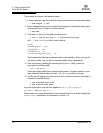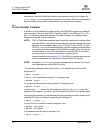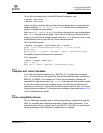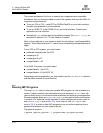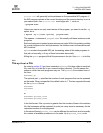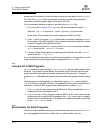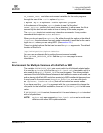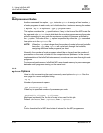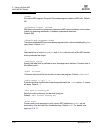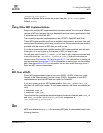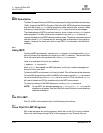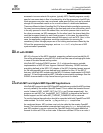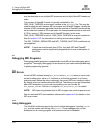
3 – Using InfiniPath MPI
InfiniPath MPI Details
3-14 IB6054601-00 D
Q
3.5.9
Multiprocessor Nodes
Another command line option, -ppn, instructs mpirun to assign a fixed number p
of node programs to each node, as it distributes the
n instances among the nodes:
$ mpirun -np n -m mpihosts -ppn p program-name
This option overrides the :p specifications, if any, in the lines of the MPI hosts file.
As a general rule,
mpirun tries to distribute the n node programs among the nodes
without exceeding on any node the maximum number of instances specified by
the
:p option. The value of the :p option is specified by either the -ppn command
line option or in the
mpihosts file.
NOTE: When the
-np value is larger than the number of nodes in the mpi hostsfile
times the
-ppn value, mpirun will cycle back through the hostsfile,
assigning additional node programs per host.
Normally, the number of node programs should be no larger than the number of
processors on the node, at least not for compute-bound problems. In the current
implementation of the InfiniPath interconnect, no node can run more than eight node
programs.
For improved performance, InfiniPath MPI uses shared memory to pass messages
between node programs running on the same host.
3.5.10
mpirun Options
Here is a list summarizing the most commonly used options to mpirun. See the
man page for a more complete listing.
-np np
Number of processes to spawn.
-ppn processes-per-node
Create up to specified number of processes per node.
-machinefile filename, -m filename
Machines (mpihosts) file, the list of hosts to be used for this job.
Default:
$MPIHOSTS, then ./mpihosts, then ~/.mpihosts
-M
Print a formatted list of MPI-level stats of interest for the MPI programmer



